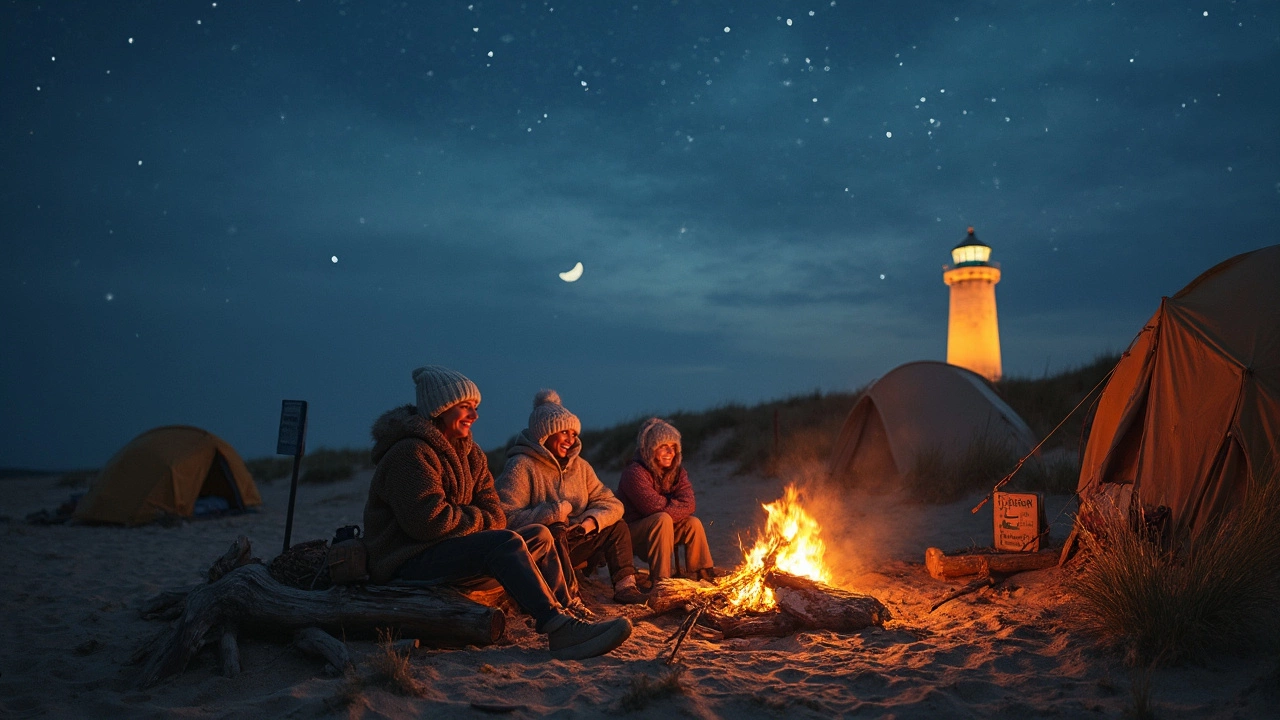Public Beaches in the UK: Where to Camp, Swim, and Relax
If you love the sea but don’t want to pay for a private resort, public beaches are the answer. The UK has miles of coastline that anyone can use, and many of them let you set up a small tent or just spread a blanket on the sand. This guide shows you how to find those spots, what the rules are, and which beaches are worth a visit.
How to Find Free Public Beaches
First, check the local council website. Most councils list which sections of the coast are public rights of way and which are private. Look for terms like “public access,” “free beach,” or “right of way.” If you’re on a walk, signs on the shore often point out where you can park or set up a low‑key campsite. A quick Google search for "public beach + [county]" will also pull up forums where campers share recent experiences. Remember that some beaches allow overnight stays only in a tent, not a motorhome. If you bring a caravan, you’ll need a designated campsite nearby.
Top Public Beaches for Beach Camping
Rhossili Bay, Wales – Long stretches of sand, good tides for swimming, and a few free spots where you can pitch a small tent. Arrive early in the summer, because the popular areas fill up fast. Whitby West Pier, North Yorkshire – Easy access from the town, a flat beach, and nearby facilities like toilets and a café. It’s perfect for a one‑night stay. St. Omer’s Bay, Cornwall – A quieter cove with beautiful cliffs. The beach is public, and you can camp low‑key as long as you keep noise down and pack out all rubbish. Barra Head, Scotland – Remote and stunning, the beach is open to the public and great for walkers. The wind can be strong, so bring a sturdy tent. South Stack, Anglesey – Offers dramatic sea views and a public area where you can set up a small shelter. Watch the tide charts – the rock pools disappear quickly. All these spots share a few common rules: you can’t stay longer than 24 hours, you must leave no trace, and you should avoid setting up in areas with signs that say “No Camping.”
When you arrive, look for a flat area away from the high‑tide line. Use a small, lightweight tent that won’t damage the sand. Bring a sleeping pad, a simple stove or portable heater if it’s cool, and a headlamp for late‑night walks.
Safety matters. Check the tide times before you set up; a sudden rise can wash away your gear. Keep a first‑aid kit handy, and let someone know where you’ll be. If you’re camping with kids, make sure the beach has a safe swimming zone.
Finally, respect the locals. Keep noise low, don’t leave rubbish, and follow any specific rules posted on signs. A clean, quiet campsite makes the beach more enjoyable for everyone and keeps the area open for future campers.
Enjoy the freedom of a public beach, the sound of waves, and the simple pleasure of sleeping under the stars. With a bit of planning and common sense, you’ll have a great beach adventure without spending a penny on entry fees.
-
 VIEW POST
VIEW POSTCan You Camp on Public Beaches in the UK? Everything You Need to Know
Apr, 27 2025|0 CommentsThinking of sleeping under the stars on a UK beach? The rules are trickier than they seem. This article explains the legal ins and outs of camping on public beaches, shares practical tips to avoid fines or trouble, and highlights cool beach spots where camping might be possible. Get the facts, avoid the pitfalls, and learn how to make your UK beach camping dream a reality—if you know how to do it right.